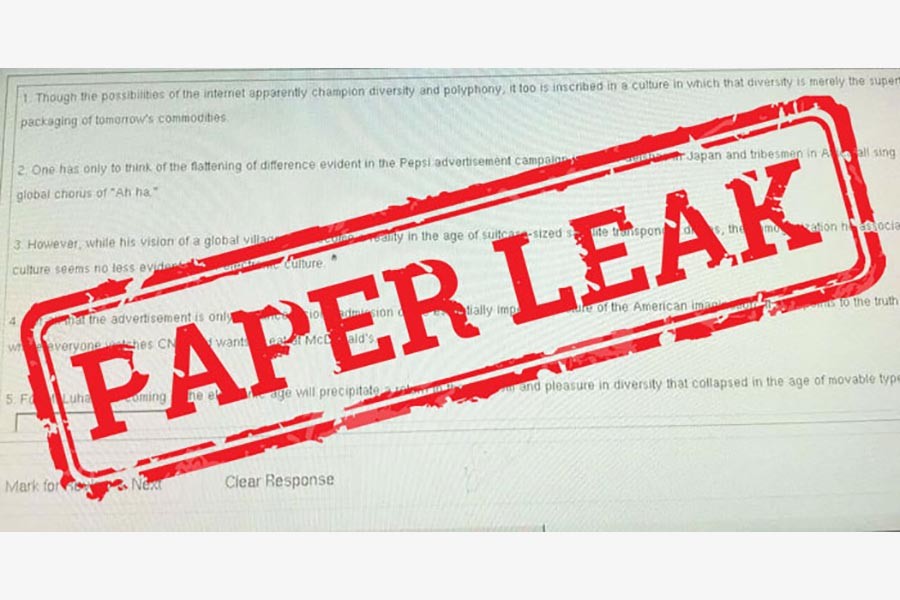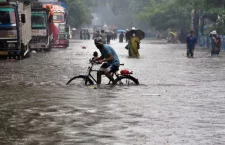In recent years, competitive exams in Uttar Pradesh and Bihar, particularly those conducted by the National Testing Agency (NTA), have been marred by several paper leaks, raising concerns about the integrity of the examination system.
In June 2024, the UGC-NET exam, crucial for entry-level teaching positions and PhD admissions, was cancelled due to an alleged breach, prompting a CBI investigation. Similarly, in May 2024, the NEET-UG exam, the sole national exam for admission to undergraduate medical education in all medical institutions, faced a major leak, with arrests made in Patna for distributing the compromised papers. The 2024 UGC NET examination is scheduled to be held between August 24 and September 4.
In Uttar Pradesh, exams like Teacher Eligibility Test (TET) and police recruitment exams have been similarly compromised, resulting in widespread delays, cancellations, and re-examinations.
According to data analysed by India Today, from 2019 to 2024, India reported 65 instances of exam paper leaks affecting national and state-level exams like NEET, CTET, and JEE Mains. The highest number of cases was reported from Uttar Pradesh, Rajasthan, and Maharashtra, with leaks causing exam cancellations and recruitment delays for over three lakh government positions. Investigations pointed to organised criminal gangs profiting from these leaks, leading to public protests and calls for reform in exam security and management practices.
Government data reveals that from 2014 to 2022, 220 million people applied for federal jobs in India, with only 722,000 candidates ultimately selected.
In Uttar Pradesh, the dream of securing a government job is becoming increasingly elusive for many aspirants. 29-year-old Meera Bhardwaj from Ayodhya, is one such candidate who has faced repeated setbacks due to systemic issues with the state’s examination process.
Meera Bhardwaj’s father, a farmer, earns an annual income of ₹1.5 lakh, just enough to cover the household expenses. Meera’s family, including her four sisters, brother, and parents, has pinned their hopes on her securing a stable government job. However, the path to this job has been fraught with challenges.
For the past four years, Meera has been preparing for various government exams, including the NET, while attending coaching classes that cost ₹1,500 per month. Her efforts have been thwarted by the frequent leaks of government exam papers, highlighting a broader crisis affecting thousands of students across the state and beyond.
The aspiration for social and economic mobility, combined with limited job opportunities, has created a long-standing pull towards government competitive exams in both Bihar and Uttar Pradesh. The perception that a government job can offer a stable income, job security, and social prestige drives thousands of young people to invest years of their lives preparing for these exams, often under challenging conditions.
This isn’t the first time Meera has faced such disappointment. The 2021 TET exam was also leaked, and now, in June 2024, history repeated itself with the NET exam. Meera’s frustration is palpable as she reflects on the larger issues at play. “It feels like the government doesn’t want to provide employment. So many educated young people are left in limbo because the system is broken,” she says. Meera, who had taken the exam, learned of the leak shortly after leaving the examination hall. “As soon as I checked my phone, I saw messages from coaching institutes saying that the paper had been leaked. All our hard work and time felt wasted,” she said.
This incident is part of a troubling trend where exam leaks have become alarmingly common, particularly in Uttar Pradesh. The recurring nature of these leaks has led to significant delays in the examination process, with many cases ending up in court. These legal battles can take years to resolve, by which time many candidates are rendered ineligible due to age limits.
The impact of these systemic failures extends beyond the immediate disappointment of not being able to sit for a valid exam. For aspirants like Meera, the constant uncertainty has taken a toll on their mental health and financial stability. “Each time this happens, I feel a sense of helplessness. My parents have invested so much in my education, but how long can they keep doing this?” Meera asked.
Meera shared that in her family, the pressure on women to secure a government job is immense, as it is seen as crucial for finding a suitable marriage match and avoiding a high dowry. She explained, “If the boy has a government job and the girl doesn’t, he can demand a higher dowry. But if the girl also has a government job, the dowry can be avoided.” This expectation turns education into a burden rather than a blessing, as it’s closely tied to the pressure of securing a government job to evade steep dowry demands. “A government job has become the price of a good marriage,” Meera said.
Meera’s experience is far from isolated. In Bihar, similar frustrations are widespread. Preeti Kumari, a student from Patna, was outraged when the NEET-UGC exam was leaked. “We were furious with the NTA, an agency with a history of exam scandals. Despite this, no action was taken against them,” Preeti said.
Uttar Pradesh and Bihar, two of India’s most populous states, are at the centre of a complex socio-economic landscape marked by high unemployment rates, poverty, and fragmented land ownership. Nationally, the unemployment rate in India was 9.2% in June 2024, a notable increase from 7% in May 2024. This rise reflects ongoing economic challenges and labour market dynamics. The rural unemployment rate rose to 9.3% in June from 6.3% in May, while the urban unemployment rate climbed from 8.6% to 8.9% as per the Centre for Monitoring Indian Economy.
These challenges, coupled with the aspiration for social and economic mobility, have driven the youth towards government competitive exams as a potential pathway to stability and progress.
The situation is particularly dire in Bihar, where jobs are crucial for social and economic security, especially for those who don’t belong to a land owning family. “When exams are repeatedly leaked, it destroys our faith in the system,” says Tanu, a school teacher from Rohtas.
Land ownership in both Bihar and Uttar Pradesh is fraught with challenges. In Bihar, the situation is marked by small and fragmented landholdings. The agrarian economy, heavily reliant on small-scale farming, provides limited income and security, compelling many to look for alternatives. In the absence of industrial jobs, government employment becomes the most viable option for economic mobility.
Uttar Pradesh, while land ownership is somewhat more diverse, similar issues of land fragmentation and unequal distribution persist. For families with little or no land, the prospects of securing a government job are particularly appealing. These jobs offer not only financial security but also a way to gain social mobility in a society where land ownership is often linked to status and power.
The recurring leaks have raised serious questions about the efficiency and accountability of the government and the agencies responsible for conducting these exams. Aspirants like Meera believe that stronger action is needed to prevent such incidents. “The government must be more vigilant and conduct thorough investigations into these leaks. It feels like they are not serious about students’ futures,” Meera asserted.
Students’ protests against these injustices are often met with police brutality, further eroding their faith in the system. “How can we ask for help when we know the government won’t give it? When we protest, we’re met with batons instead of support and solutions,” Meera concludes.
The frequent leaks of government exam papers in Uttar Pradesh and Bihar have placed the dreams of thousands of aspirants on hold. For candidates like Meera Bhardwaj, the path to securing a government job is increasingly uncertain, marred by systemic inefficiencies and a lack of accountability. As these issues persist, the hopes of an entire generation hang in the balance, with no clear resolution in sight.
Credits:
Written by: Sejal
Report by: Kumkum and Nazni
Edited by: Srishti
‘यदि आप हमको सपोर्ट करना चाहते है तो हमारी ग्रामीण नारीवादी स्वतंत्र पत्रकारिता का समर्थन करें और हमारे प्रोडक्ट KL हटके का सब्सक्रिप्शन लें’


